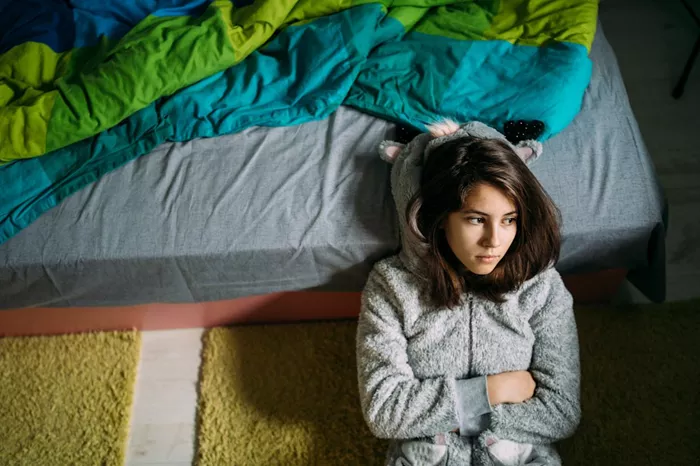A new U.S. study has found that many teenage girls who want to lose weight are skipping breakfast, not getting enough sleep, and spending more time on screens—choices that may hurt their health in the long run.
Obesity affects more than 1 in 5 American teens aged 12 to 19. Girls are especially likely to feel unhappy with their bodies, even if they are a healthy weight. This pressure often comes from social media, friends, and family. As a result, many girls try to lose weight without following healthy habits like eating well and staying active.
Researchers from Worcester State University looked at national data collected in 2021 by the Centers for Disease Control and Prevention (CDC). The survey included answers from over 4,300 high school girls in grades 9 through 12. The girls were split into two groups: those trying to lose weight and those who were not.
The study examined their habits, such as eating breakfast, how much sleep they got, how active they were, and whether they used alcohol or e-cigarettes. The team also looked at how the girls viewed their bodies and compared those views to their actual Body Mass Index (BMI), based on their reported height and weight.
More than half (55.5%) of the girls said they were trying to lose weight. These girls had higher average BMIs, but surprisingly, 43% of girls in the normal weight range also said they wanted to lose weight.
Even more concerning, 16% of normal-weight girls said they were trying to gain weight, showing that body image issues can affect girls in many different ways. Hispanic girls had the highest rates of wanting to lose weight (66.3%), followed by girls of mixed Hispanic background (59.9%). Among girls in the normal weight range, the highest rates were seen in white (47.5%) and Asian (45.7%) teens.
Girls trying to lose weight were more likely to:
- Skip breakfast regularly
- Sleep less than 8 hours a night
- Spend more than 3 hours a day on screens
- Use alcohol and e-cigarettes
While they were slightly more likely to do muscle-strengthening exercises, there was no difference in whether they got the recommended 60 minutes of daily physical activity. Eating vegetables (other than carrots, potatoes, or salads) was also less common in this group.
Researchers believe that screen time plays a major role in these patterns. Girls who use screens more also tend to sleep less and may feel worse about their bodies. This can create a cycle where poor self-image leads to unhealthy habits, which in turn can increase stress and lead to even more body dissatisfaction.
The study noted that the desire to lose weight was highest among obese girls (87.8%), but it was still very common among girls who had a healthy weight. This suggests that many teens may have unrealistic ideas about what their bodies should look like.
Trying to lose weight in unhealthy ways can backfire. Skipping meals and not sleeping enough can slow down metabolism and increase the risk of both physical and mental health problems. These habits don’t help teens become healthier—in fact, they can do the opposite.
Experts say that instead of focusing only on weight, teens should be encouraged to build healthy habits that support their overall well-being. That includes eating regular meals, sleeping enough, staying active, and limiting screen time.
Since this was a cross-sectional study (meaning it looked at one point in time), it can’t prove cause and effect. Still, the patterns suggest important areas where schools and families can help.
The study recommends:
- Teaching teens about healthy eating and sleep habits
- Encouraging positive body image
- Limiting harmful screen time
- Avoiding diet-focused messaging
Programs in schools and at home can help girls feel better about their bodies and make healthy choices that last into adulthood.
Many American teen girls want to lose weight, but they often turn to habits like skipping breakfast and losing sleep. These choices can hurt more than help. Instead, support from schools, families, and health programs should guide them toward healthy, lasting habits and a more positive body image.
Read more:
- Healthy Diet May Delay First Period, Study Finds
- More Screen Time Tied to Sleep Problems, Depression in Teen Girls
- Health Experts Call for Early Syphilis Screening in All Pregnant Women


